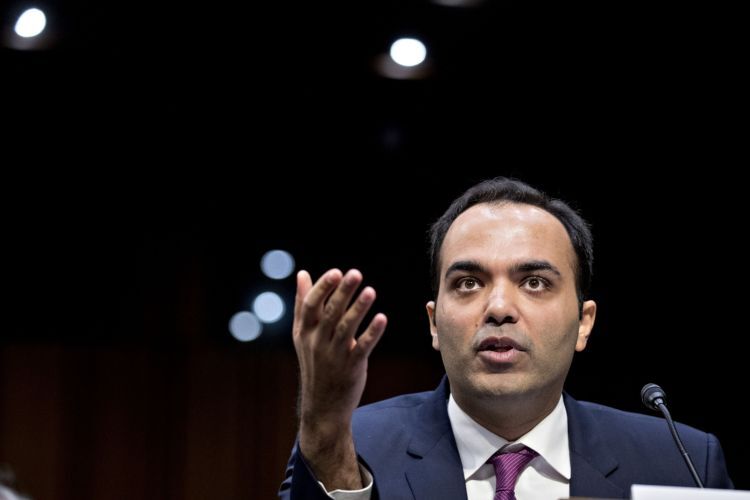Rohit Chopra, the director of the Consumer Financial Protection Bureau, is laying the groundwork to rein in Facebook and other Big Tech companies with expanded oversight — and potentially a public rebuke — on how they collect and sell consumer data.
Meta Platforms’ Facebook has long been in Chopra’s sights. He wrote a scathing rebuke of what he called Facebook’s “illegal data practices” in 2019 while serving on the Federal Trade Commission.
At the time, Chopra lamented that the FTC’s $5 billion settlement with Facebook for privacy violations was too small given the social media giant’s status as a repeat offender of regulatory orders. Chopra wanted CEO Mark Zuckerberg and COO Sheryl Sandberg to be held personally liable and has called for more restrictions on the tech giant’s ad-driven practices.

Since taking control of the CFPB in October, Chopra has made several moves to bolster the CFPB’s authority to designate Facebook or any other Big Tech firm as posing a risk to consumers.
“It’s clearly one of Director Chopra’s desires to bring the Big Tech companies within the purview of the CFPB’s regulatory oversight,” said Jenny Lee, a partner at ArentFox Schiff. “It’s a new emphasis and there are a half a dozen ways to go after Big Tech.”
For the past few months, Chopra has laid out an arsenal of tools against large financial firms that were informed by his analysis of the FTC’s Facebook settlement. He has dug into the CFPB’s broad authority, found obscure new mechanisms to use and highlighted existing Dodd-Frank Act rules to shine a light on Facebook’s consumer practices.
The CFPB declined to comment for this story, and Facebook did not respond to a request for comment.
Taking action any Facebook, which had $86 billion in revenue last year, appears to be a priority though it could strain the CFPB’s resources and may come at the expense of other enforcement actions.
“It looks like he’s taking his time to set up the chess pieces on the board,” said Richard Horn, co-managing partner at Garris Horn and a former CFPB senior counsel and special advisor. “That’s probably why we haven’t seen a lot of enforcement actions, in terms of quantity, because those investigations take a ton of research and back-and-forth between CFPB attorneys and Big Tech companies in general.”
Here are the five main ways the CFPB could use its authority to enforce laws against Facebook and other technology firms.









